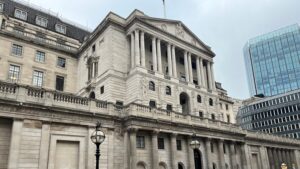Roubini is not simply one of the many who claimed after the event to have spotted the 2007 financial crisis, but is one of the few who actually got round to telling anyone who would listen, including the International Monetary Fund, of scenarios that included the unwinding of mortgage-backed securities, the “once-in-a-lifetime housing bust” in the US and the shuddering to a halt of the global financial system.
At the time his comments were described as “seemingly outlandish” but in the space of three years he was proved to have been right on the money.
Debt restructure
In an article in today’s Financial Times, Roubini looks at the issues facing the eurozone countries and then goes through the various options open to them in addressing their debt crisis. So when he says: “There is really only one other way to go forward: for some countries to go back to national currencies, and achieve a major nominal and real depreciation” we really should sit up and listen.
Within the monetary union, he added, “convergence has gone, reform has stalled, while fiscal and political union is a distant dream”.
According to Roubini, the upshot is that debt restructuring will happen and that the eurozone will break up.
The argument for the past few years is the euro’s use as a political symbol means that the Central Banks would not allow any such break-up to happen, and that it would be too costly and complicated anyway and was thus not worth seriously contemplating.
Economically politic
But European political and economic policy have recently merged to become pretty much the same thing. Even the IMF leadership battle has supporters of the underdog candidate Agustin Carstens (Governor of the Bank of Mexico) arguing that it would be a conflict of interest to have another European at its head (French Finance Minister Christine Lagarde is the runaway favourite), such is the extent of the continent’s debt problems.
A year ago, the argument that the euro is a predominately political tool would have won out, but this is no longer the case and is only magnified when the spread of the debt is mapped put across the continent. Prior to 2007, it was inconceivable to most that the US would have been downgraded by the rating agencies and the idea that it would be put on a ‘negative outlook’ was laughable.
This is certainly not the case anymore and Roubini may well prove to be right once again – perhaps in the same sort of timescale.







